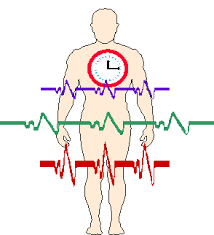
Tell your brain what you want.
How do you develop a positive attitude? Feed your brain positive information. Studies in neuroscience prove that we can change our brains just by thinking. One example is the placebo effect. It’s not the sugar pill or saline solution that does the healing; it your belief that it will cure you that actually prompts the healing.
According to Joe Dispenza, in his book, Evolve your brain, “what we think about, and where we focus our attention is what we neurologically become.”
Your brain already has fixed beliefs and habits formed over a lifetime of experiences and environmental influences. If the result is negativity, you can change this by managing your brain. If “you” were your brain, this would be impossible since you would already have your “mind” made up.
But as mentioned in a previous article, you are not your brain. You are “the mind within the brain,” as the title of A. David Redish’s book suggests. “You,” (including your consciousness) are your mind. It resides within the prefrontal cortex of the brain according to Joe Dispenza, and whether it is without substance (perhaps being energy) is yet to be determined.
But one thing is certain. You are able, through focused thought, to change the neurological make up of your brain and make physiological changes to your body.
The key is focused thinking. That’s why meditation helps. Joe Dispenza, in in his book, You are the placebo, mentions that the most difficult part of mentally healing his six broken vertebrae was a continual loss of attention. He believes we spend too much attention and energy thinking about what we don’t want, instead of what we do want.
So when you feed your brain with those positive thoughts mentioned in my last blog article (part 3 of this series) accept the fact that it may be difficult concentrating on what you want; but you will become more focused with practice.
Not only can your mind influence your brain and your brain influence your body, your body can influence your brain as well. Sian Beilock, in her book, How the body knows it’s mind, explains how Botox injected into frown wrinkles can help cure depression. It not only eliminates the frown lines, but also the ability to frown. Botox contains a neurotoxin that paralyzes muscles in which it is injected. Physicians believe that not being able to express negative emotions reduces negative feelings.
We have probably all experienced a situation where our mood was changed when forced to laugh. It’s hard to be angry when you’re smiling. And it has been shown that smiling while immersing your hand in ice water reduces the stress and lessens the pain.
There is a definite connection between body and brain that we can use to alter our mood, attitude and behaviour. This will in turn impact our time, our health, and our lives.
Note: books referenced in this article include:
Beilock, Sian. How the Body Knows Its Mind: The Surprising Power of the Physical Environment to Influence How You Think and Feel. New York: Atria, 2015. Print.
Dispenza, Joe. You Are the Placebo: Making Your Mind Matter. Carlsbad, CA: Hay House, 2014. Print.
Dispenza, Joe. Evolve Your Brain: The Science of Changing Your Mind. Dearfield, FL: Health Communications, 2007. Print.
Redish, A. David. The Mind within the Brain: How We Make Decisions and How Those Decisions Go Wrong. New York: Oxford UP, 2013. Print.

Recent Comments